Essential oils against viruses, bacteria and microbes
With winter and the cold, viruses, bacteria and microbes return, bringing with them their share of infectious diseases. Essential oils are highly effective against the beginnings of colds and other winter illnesses... They have many properties (antiseptic, antiviral, antibacterial, immunostimulant...) and should not be neglected against bacteria and viruses. Before rushing to the chemist's, you can try treating minor winter ailments with a few essential oils.
Make your own hydroalcoholic gel
Whether on the move, at work... we're constantly confronted with germs in the places where we live, and sometimes it's impossible to wash our hands. Even though good hand hygiene involves washing with soap and water, there are alternative solutions !
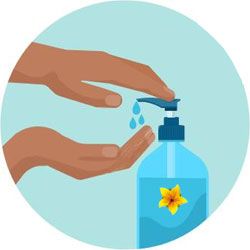
Hydro-alcoholic solutions are now widely used to combat the transmission of bacteria, viruses and fungi through contaminated hands, and to help eliminate them. In hospitals, these antiseptic soaps are used to prevent nosocomial diseases that can be transmitted during a stay in hospital or during treatment. For the general public, hydroalcoholic gels have become widespread to combat the transmission of viruses such as influenza, covid-19 (coronavirus) and gastro-enteritis.
Antibacterial hydroalcoholic gel is an effective alternative where there is no water point, such as on public transport. It's very easy to make your own. So you can avoid running into shortages during complicated national episodes (remember H1N1 or Covid-19!). We've selected 2 essential oils, renowned for their powerful antiseptic and antiviral properties.
Tea tree : Tea tree essential oil is the benchmark antiseptic! This essential oil is equally effective against bacteria, viruses and yeast. So it's an ideal ingredient for a hydroalcoholic gel. Its main properties are broad-spectrum antibacterial and antifungal, antiviral and immunostimulant.
Ravintsara: This is a powerful antiviral. Thanks to its composition rich in 1,8-cineole and alpha terpineol, it is unquestionably effective as an anti-infective. In addition, this essential oil supports the action of Tea Tree as it is also an immunostimulant: a high-performance immune system is an ally against microbes !
These 2 essential oils should be mixed with 70° alcohol and aloe vera gel.
70° alcohol is an antiseptic and disinfectant ethanol solution. It works locally and quickly, effectively getting rid of any germs you may come across on the road !
As for aloe vera, thanks to its ability to retain water and its nutrient-rich composition, it moisturises, softens and smoothes the skin. So it's ideal for countering the drying effects of alcohol and essential oils and moisturising hands effectively.
To make your own 200 ml hydroalcoholic gel, nothing could be simpler. In a small bowl, first mix 70 ml of 70° alcohol with 50 drops of Tea tree essential oil and then 50 drops of Ravintsara essential oil. Then add 130 ml of organic Aloe vera gel. Mix well and pour into a pump bottle to make daily use easier. Simply place a dab of your gel on your hands and rub until it penetrates. For information, 30 drops of essential oil are equivalent to about 1 ml.
Other essential oils can also replace Tea tree or Ravinstara. These include Eucalyptus radiata, Laurel, cinnamon, lemon and clove. Don't hesitate to make your choice of antibacterial and antiviral essential oils.
Essential oils are antiseptic
These are the properties best proven by modern scientific research. The vast majority of essential oils have antimicrobial or even antiviral properties, but some have more than others. Essential oils reach the cellular level and help to destroy pathogenic agents (microbes, fungi (mycosis), viruses, infectious toxins) and eliminate metabolic waste, while respecting the integrity of the beneficial flora (saprophyte). Immune defences are strengthened.
Essential oils are anti-bacterial
The aromatic molecules with the highest antibacterial coefficient are the phenols (over 92% of pathogenic bacteria are sensitive to them): carvacrol, thymol, eugenol, australol and guaicol also belong to this group, but essential oils containing them are less active. A molecule that does not belong to this group, but is similar in the presence of a benzene ring, is cinnamic aldehyde (cinnamon).
Used properly, these four molecules can control most common infections. Just behind the phenols are the monoterpenols (10-carbon alcohols): geraniol, linalool, thujanol, myrcenol, terpineol and menthol. Less powerful but also useful as an antibacterial agent is the group of aldehydes: neral, geranial, citronellal and cuminal.
Ketones are useful for treating infectious conditions: verbenone, thujone, cryptone, menthone, D. carvone, borneone, fenchone, but their neurotoxic and abortifacient properties make them difficult to use. To a lesser extent, ethers (estragole and anethole), oxides, phthalides and terpenes are also used as antibacterial agents. Terpenes are mainly used for diffusion as an atmospheric antiseptic.
Essential oils are anti-viral
Viruses give rise to a wide variety of pathologies, some of which pose problems that remain unsolved today. As the conventional responses to these infections are very limited in the pharmaceutical arsenal, essential oils are a godsend for combating viral disorders, from the most commonplace to the most dreaded. Viruses are generally very sensitive to aromatic molecules, and certain serious viral pathologies can be significantly improved by using them. What's more, the healthy cells of patients using essential oils acquire a particular resistance to viral penetration.
Essential oils act indiscriminately on all viruses. This is why its systematic use is recommended for all viral diseases.
In the fight against viruses, as with antibacterial agents, the hydroxyl group (phenol and monoterpenol) comes first. Phenols are more powerful, but should be used with caution. For long-term use, monoterpenolic oils are preferable to the much more 'aggressive' phenolic oils.
Various tests on the virulicidal power of essential oils have been carried out by laboratories. The virology laboratory in Toulouse tested the essential oil of Melaleuca quinquenervia cineolifera (niaouli) on the Herpes virus. After a contact time of 15 minutes in vitro, the virulicidal activity fell by more than 40,000.
Another very interesting group are the aldehydes, which have undeniable activity on pathogenic bacteria. Non-toxic and often with a pleasant odour, they are mainly used as airborne antiseptics (diffusion) or as surface disinfectants. The best-studied molecule, cinnamaldehyde (cinnamon), has major anti-infectious properties, making it one of the most active. Its activity also extends to viruses, fungi and parasites.
Purify the air in your home with essential oils
Diffusing essential oils using a micro-diffusion diffuser is a good way to purify the air.
Technically, all essential oils can be diffused, but some are too "strong" to be diffused or mixed with other "milder" essential oils.
Lemon, Ravintsara, Rosewood, Eucalyptus radiata and Palmarosa essential oils can be diffused pure or blended together. On the other hand, cinnamon leaf, Tea tree, Niaouli, Eucalyptus globulus, Basil and Laurel should be blended with other essential oils before diffusion. However, beware of allergy sufferers: lemon, for example, contains limonene, a recognised allergen.
Our synergy to diffuse to fight viruses :
In a 10 ml dropper bottle, mix 2 ml of Tea Tree essential oil (about 60 drops) + 5 ml of Lemon essential oil (about 150 drops) and finally 3 ml of Black Spruce essential oil (about 90 drops). Pour 30 to 60 drops of the mixture into an electric diffuser or about ten drops into the water of a mister, and diffuse in living areas for cycles of 10 to 15 minutes. You can also use bay laurel essential oil instead of black spruce. It is also an excellent antiviral, antibacterial and antifungal agent, and is well tolerated when diffused in the air.
How long is a virus contagious ?
In winter, enclosed premises and public places are poorly ventilated, which makes it easier for viruses to spread. Coughing, sneezing, spitting and close contact with a sick person are all ways of transmitting viruses from one person to another. The virus can also be transmitted via contaminated objects (door handles, metro bars, pens, etc.). Unfortunately, the risk of contagion is highest during the incubation period, when symptoms are not yet, or barely, visible. This incubation phase depends on the virus in question and the individual, and lasts on average from 6 to 14 days. Always carry a small bottle of antiviral essential oil with you, such as Ravintsara or Eucalyptus radiata, so you can react as quickly as possible. Breathe deeply directly into the bottle to neutralise the virus and disinfect the respiratory tract.
What is the Coronavirus ?
Coronaviruses are crown-shaped virions around 120 nm in diameter (2) that are transmitted by air and cause respiratory and gastrointestinal diseases in humans, poultry and cattle. Until now, there have been 6 coronaviruses, 4 of which are not serious, causing mild flu-like symptoms, and 2 of which are highly pathogenic for humans. The latter two infect the upper and lower respiratory tracts and cause severe respiratory illness, accompanied by fever, cough and muscle aches: the SARS-CoV (severe acute respiratory syndrome) coronavirus and the MERS-CoV (Middle East respiratory syndrome) coronavirus. These viruses were responsible for the epidemics in 2002 and 2003.
The Chinese virus, identified for the first time, belongs to the coronavirus family, making it the seventh virus capable of producing clinical manifestations in humans. Since the outbreak of the epidemic in the Chinese city of Wuhan in December 2019, it has claimed many victims and continues to spread around the world.
Since then, vaccines and treatments have been developed, considerably reducing the number of victims. But the virus is constantly evolving. The Delta variant accounts for almost all the viruses circulating in France, representing over 99% of sequenced viruses. The L452R mutation (carried mainly by the Delta variant) was detected in 96% of positive samples in mid-October 2021. The most effective way of avoiding infection is still to apply strict preventive and general hygiene measures.
List of the main essential oils that can be used against viruses
(From the most "powerful" to the least "powerful")
- Oregano (origanum compactum, flowering plant) - phenol: carvacrol
- Savory (Satureia montana, flowering plant) - phenol: carvacrol
- Thyme (thymus vulgaris thymoliferum, flowery sommities) - phenol: thymol
- Clove (eugenia caryophyllata, flower buds) - phenol : eugenol
- Cinnamon (cinnamomum zeylanicum, branches) - phenol : eugenol
- Tropical basil (ocimum basilicum, flower) - phenol methyl ether : chavicol me
- Palmarosa (cymbopogon martinii, plant) - monoterpennols : geraniol
- Rosewood (aniba parviflora, wood) - monoterpénol: linalol
- Eucalyptus Radiata (eucalyptus radiata, sheet) - oxide: 1.8cineole and monoterpennol: terpineol
- Ravintsara (cinnamomum camphora, sheet) - oxide: 1.8cineole and monoterpennol: terpineol
- Niaouli (melaleuca viridiflora, sheet) - oxide: 1.8cineole and monoterpénol: terpineol, viridiflorol
- Tea tree (melaleuca alternifolia, sheet) - monoterpene: terpine 1-4
- Laurel (laurus nobili, leaves) - monoterphenol: linalol and oxide: 1.8cineole
- Eucalyptus globulus (eucalyptus globulus , sheet) - oxide: 1.8cineole
- Lemon (citrus limonum, zeste) - monoterpene: limonene
There are others, such as Origan d'Espagne, Bay, thym géraniol, Ciste, estragon, Monarde, etc., but they are less common or much more expensive.
(source: "L'aromathérapie exactement" by Pierre Franchomme, published by Roger Jollois)
A few articles on viruses
Many articles on viruses and essential oils have been published. We have selected a few that we thought might be of interest. Above all, "don't die of fear", advises Dr Jean-Pierre Willem, surgeon, phytotherapist and president of Médecins aux pieds nus. Especially as "we are not helpless. Faced with the uncertainty of an effective chemical therapy, aromatherapy will have its day," he says. Several essential oils have recognised antiviral action, and there are hundreds of references proving their effectiveness".
- "Essential oils : antiviral agents" was the theme of the 6th International Clinical Aromatherapy Conference held in San Francisco last April, where doctors and specialists from around the world, including Professor Jürgen Reichling from the University of Heidelberg, presented their latest work.
- Dr Christian Duraffourd, President of the French Society of Phytotherapy and Aromatherapy, points out that "the anti-infectious potential of essential oils (provided they are not rectified or modified) is clear-cut for all acute or chronic infections, whether microbial or viral".
- Should essential oils be used preventively ? While it may be a good idea to use them in cures to strengthen the immune system (inhalations, massages or even suppositories), Dr Willem believes that "in the event of a pandemic, it will be time to diffuse them in the atmosphere of homes and to take antiviral capsules offered by natural product laboratories". In the journal Pratiques de santé, he also recommends rubbing essential oils containing molecules known as monoterpenols (Madagascan ravensara, rose geranium, marjoram, etc.) or phenols (clove, thyme basil, savory, etc.), which are stronger and need to be diluted in fatty oil before use.
- Dr Lablanchy also recommends ravensara essential oil and vitamin C (anti-viral) for prevention. He also stresses the immunosuppressive effect of stress: "Researchers are finding more and more links between the nervous and immune systems. Could it not, in fact, be the same system?
- In addition to these precious natural therapies (of which there are many others), we must of course focus on the basic factors of health. This is true primary prevention. The sinews of war," writes Dr Jean-Paul Curtay, "are energy. The best way to catch a cold or have an outbreak of herpes is to be tired. Yet our energy levels and immunity depend above all on a sober and truly healthy diet, good breathing, good sleep, regular physical exercise, avoidance of pollutants (chemicals, tobacco, white sugar, refined flours and oils, etc.), as well as vitamins (A, C, E, D, etc.) and minerals (iron and, above all, zinc) that maintain good natural defences.






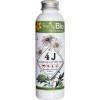
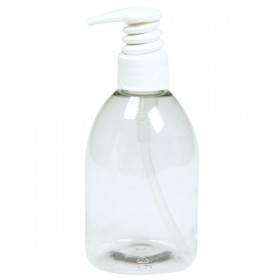
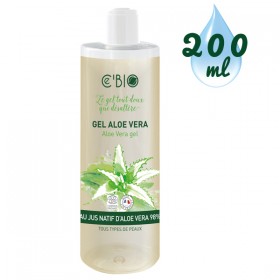
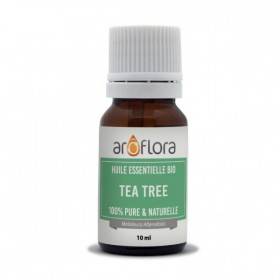
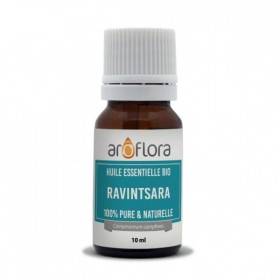
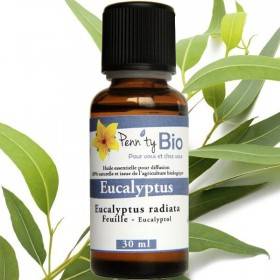
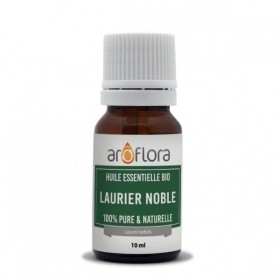
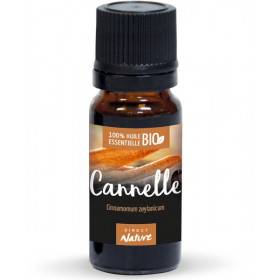
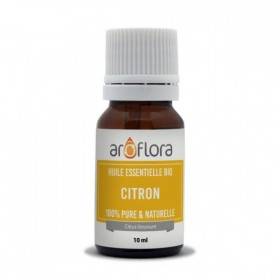
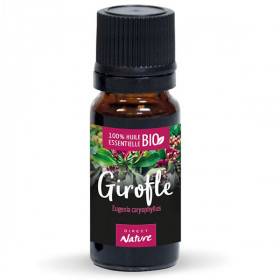
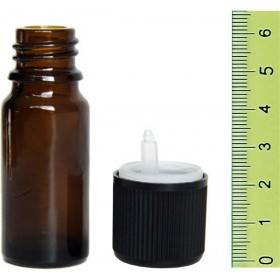
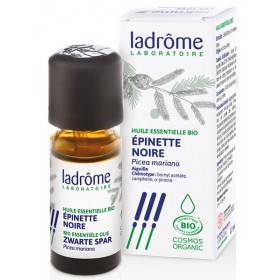
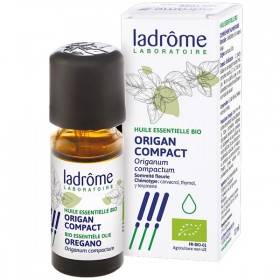
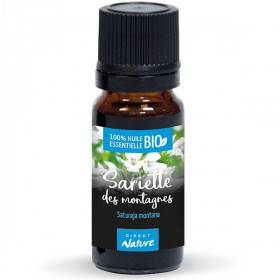
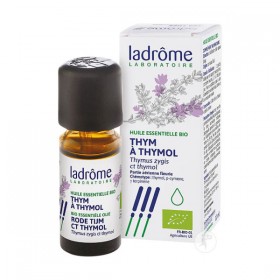
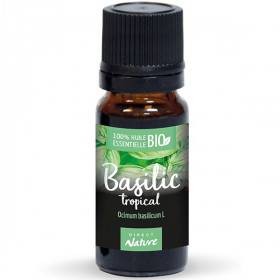
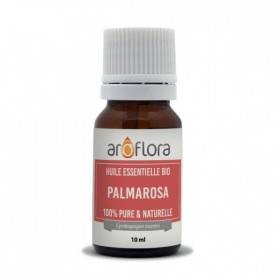
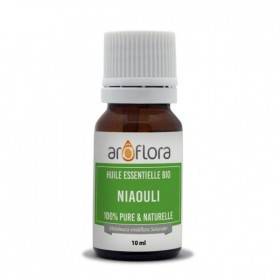
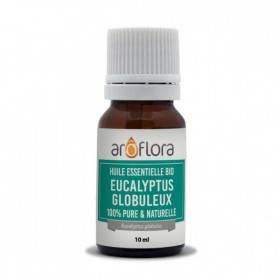
Customer reviews
Entièrement satisfaite.
Ch. D.
Explication, commentaire et livraison en un temps record, tout était parfait, même le petit mot de remerciement écrit à la main ! Merci beaucoup
Monique S.
Livraison très rapide. Bravo pour la réactivité
François
J'ai reçu mon colis hier. Merci de vos démarches,
Sam
Client depuis des années Produits de qualités et surtout qualité de service.
XX
Quel dommage pour le produit manquant, je vous remercie pour le remboursement.
Didier
Commande passée le jeudi soir, colis livré chez mon "commerçant-relais" le samedi matin. Quelle rapidité ! Du vrai professionnalisme !
Emeline
merci pour le suivi de ma commande et les mails par lesquels vous m'avez tenu informée.
Zoé
Je parlerais de vous a mes amies car vos produits sont vraiment excellents. Bien a vous et tous mes remerciements.
Patricia
Livraison très rapide et colis emballé soigneusement.Site à recommander.
isabelle d.
Je suis cliente depuis de nombreuses années. Toujours satisfaite du site, des produits et de la livraison.
martine O.
Commande tout à fait conforme et emballée avec grand soin.
Sarah
Efficace rapide et à l'écoute. Diversité des produits. Efficacité des produits. Respect des délais de livraison et prise en compte des spécificités client PMR ( ce n'est pas toujours le cas). Site bien fait pour navigation et produits bien mis en valeur. Des promos et des bons de réduction cumulés en fonction des achats. Merci pour votre efficacité rapidité et professionnalisme.
xxx
MOI JE DIS INCROYABLE !!!<br /> Plus que mieux d'une rapidité de dingue ! bravo et le colis impeccable surprotégé.<br /> Que toutes les entreprises prennent exemple sur vous. merci
AURELIE A.
Bonjour Sophie & QUENTIN, Merci pour votre petit mot. . . . Ça fait chaud au Cœur de voir qu'il y a encore des Gens Comme VOUS sur cette planète ! Le monde devient de plus en FOU ! ! ! Cordialement.
Dominique T.
Produits conformes aux descriptifs. Délai de livraison respecté. Satisfaite du nébuliseur qui est superbe.
VR
Totalement satisfait. Les produits sont super efficaces et tout est très bien suivis. Je recommande vivement ce site.
Stéphane N.
Merci beaucoup le colis est arrivé à la poste hier et je te retire aujourd'hui Merci pour votre efficacité et votre rapidité
Ingrid
Livraison rapide et très bien emballé et protégé. Très bonne efficacité. <br /> <br />
XX
Dommage, les vendeurs ne savent pas lire les indications inscrites sur les produits qu'ils vendent
XX
Très satisfaite. Merci.
CM
Commande reçu très correcte, très bon matos, encore merci et bonne continuation.
Dominique et Monique A.
Produit conforme aux attentes.<br /> <br /> <br /> <br />
Alain
Pour ma part j'ai été satisfaite de la réalisation de ma commande et du délai de livraison. Je recommande votre société.
Nelly
Parfaitement parfait, je ne me fournis que chez Penn'ty bio depuis qu'ils m'ont débarrassée de punaises de lit.<br />
MARIE CLAUDE G.
Très contente des produits de qualités et une commande reçu très rapidement. Merci
PATRICIA A.
Super produits accueil plus que parfait gentillesse. Livraison au top merci beaucoup
Christiane
Très bon produit facile en entretenir, pas cher.
XX
Très bien , bon produits, La prochaine commande avec plaisir, livraison très rapide.<br />
Rainer
Client depuis de nombreuses années, je suis satisfait à la fois de la boutique et de pratiquement tous les produits achetés.
Jean-Claude
anne-marie B.
Merci pour l'expédition de la pièce de verrerie qui a été recu cette fois sans casse. Meilleures salutations et à très bientôt sur votre site pour un prochain achat .
Louane
Merci beaucoup pour l'info, c'est rapide chez vous, très appréciable!
Denis
Service rapide et efficace. Bons produits
XX
Un grand merci pour la qualité et la rapidité de votre réponse.
Tony
Produit anti puce extrêmement efficace !<br /> Le vendeur a pris une demi-heure de son temps pour m'expliquer absolument tout ce qu'il y avait à savoir sur le produit, de la composition a la mise en œuvre.. Bref au top ! Je recommande donc vivement Penn'ty !
Louis
Livraison rapide et soignée. J'utilise les produits bio qui sont de très bonnes qualités. Un savon m'a été envoyée par erreur à la place de celui commandé et il m'a été remplacé très rapidement. Bravo pour leur réactivité. Je recommande fortement ce site.
Liliane
clair net précis. merci
jannick
Modèle conforme bien emballé délai respecter continuer comme ça parfait.
Carlos
Envoi rapide, emballage au top, continuez comme ça... :-)
bruno b.
Parfait ! Envoi rapide et produits de qualité. Merci pour le petit mot. Je suis très satisfaite !<br />
Julieanaïs
Commande reçue rapidement, frais de port raisonnables pour expédition à l'étranger et les produits sélectionnés au top! Merci!
Cédric Adolphe B.
Site très pratique. Commande aisée. Suivi régulier. Délai de livraison respecté. Colis très soigné. Tout est parfait.
Nicole
Ravie de découvrir un site qui présente des produits de qualité avec une vraie démarche éco responsable à des tarifs intéressants.
XX
Super efficace !!!
xx
J'ai bien reçu mes articles et je vous remercie pour la livraison rapide et impeccable !
Françoise
Super, livraison rapide, suivi très rigoureux, site de confiance, très sérieux à recommander... Merci pour tout.
Bernard
très bien je recommande.
Sylvie
Très satisfait de Penn'Ty Bio : choix étendu,prix raisonnables délais de livraison rapides.
xx
Parfait. Rien à redire. Extrêmement efficace.
Quentin
Comme toujours service "au top" réactivité, qualité produits... BRAVO et merci pour la qualité de votre travail
Annick
Un grand merci pour votre professionnalisme et la qualité de vos produits. Longue vie à votre site.
XX
Après la découverte des punaises de lit dans 2 chambres de notre vieille maison, j'ai trouvé votre site. le dossier m'a été très utile et je suis très contente d'avoir trouvé des produits moins toxiques que ce que proposent les autres sites de vente.<br /> Je vous remercie d'avoir répondu à mon mail car c'est un peu l'affolement quand on découvre chez soi des punaises de lit.
Françoise S.
J'ai bien reçu ce jour, en bon état, les 2 diffuseurs galets. Merci aussi pour votre petit mot manuscrit me souhaitant un bel été. Fidèlement,
Annie
Livraison très rapide; Tout était parfaitement emballé. Je referai appel à vous.
JV39
J'ai découvert ce site en cherchant de la terre de Diatomée. Livraison rapide. Très sérieux. J'ai mis la page dans mes favoris car j'ai repéré d'autres produits.
Isa
Site très sérieux et personnel vraiment agréable. Envoi rapide. C est parfait !
Ingrid
merci de votre disponibilité et amabilité!
Eric
Bon produit mais frais de port un peu cher.
Marie Paule
super emballage écolo...bravo !
Isa
J'apprécie depuis de nombreuses années la qualité de vos produits et le sérieux de votre site. Une petite mésaventure avec un diffuseur me permet de vous féliciter pour la réactivité de votre SAV. Bravo !
Thierry G.
Produits de bonne qualité, naturels et efficaces, expédition rapide et bien emballée, sav très rapide suite à une erreur de ma part,
XX
Diffuseurs qui sortent vraiment de l'ordinaire, un envoi parfait - merci BCP
Anthony
Envoi rapide. Rien a redire.
Marie France
Je suis très satisfaite de mon échange avec le service client (personne à l'écoute, de bon conseil). Envoi rapide et soigné, avec un petit mot sympathique de l'équipe, le top!
XX
Bons produits, emballage impeccable, livraison super rapide ! Parfait !
XX
Livraison en temps record à l'adresse indiquée en France puis départ dans l'océan indien. Reception des produits en quinze jours à l'autre bout du monde : ravie. Je vous laisserai les avis produits une fois utilisés. Le site est très bien fait et très agréable à utiliser. Le petit mot à la main dans le colis humanise la transaction, je l'ai apprécié. Je pense que vos produits sont très utiles et je vous souhaite une belle réussite et sur la durée.
Sylvie D.
Avec les trois lettres BIO dans votre nom, je ne m'attendais pas à découvrir des billes de polystyrène comme matériaux de rembourrage. Il y a certainement plus écolo !
Michel D.
Un super magasin en ligne, avec plein de produits disponibles.<br /> L'envoi a été très rapide et soigné, avec une très bonne communication à chaque étape. Bref, une adresse à connaitre et à garder ! Merci !
Pab57
J'ai passé ma première commande, chez vous il y a trois jours à peine et ce matin, je reçois mon colis.
Sophie
THIERRY
Félicitations pour la qualité de votre site & la valeur de ses informations ! Continuez ainsi ! On a besoin de vous !
Ronald
Je vous remercie beaucoup de m’avoir fait profiter d’un acheminement par Colissimo alors que rien ne vous y obligeait, sauf votre conscience professionnelle, chose rare de nos jours et qu’il ne faut jamais manquer de souligner.
Cécile
Livraison rapide , le tout correspond à mes attentes.
Julie
interressante. Beaucoup d'articles référencés. Après pour la lutte contre les punaises de lit, je ne suis pas sure de l'efficacité de certains produits. C'est un vrai fléau ces bestioles.
Francelyne D.
fiable et de bonne qualité pour les services et les produits :)
XX
Livraison rapide , produits de qualité, je recommande Penn'Ty Bio.
XX
Les produits achetés sur le site sont de très bonnes qualités, et j'ai été très bien conseillée. Je recommande !
Aurore
Parfait comme d'habitude
Sylvain
produit parfait.
René
Les produits achetés sont excellents. Ils répondent parfaitement à ce que je cherchais. Bravo pour votre site
Michel
Marie-Noëlle
MERCI au personnel à l’emballage !!! Ma dernière commande était super bien emballée. Elle a résisté aux (épouvantables) chocs subis pendant le transport. Merci
Veronique
très bons produits et service commercial très performant, continuez sur cette voie, merci.
Annick
Après 2 traitements à 3 jours d'intervalle, j'ai réussi à éradiquer toutes les punaises de mon canapé. Produit hyper efficace que je recommande vivement.
Emmanuelle
Livraison très rapide. Notice livrée avec les produits ainsi qu un petit mot très agréable. Produits très efficaces, avec de l huile de coude, on en vient à bout. Le produit concentré nous a permis de tout éliminer. Par précaution, nous avons tout de même utiliser le spray. Dans une pièce, nous avons utilisé le fumigène. Pour les animaux, la mousse semble efficace. Dans quelques jours nous ferons le shampooing et plus tard les pipettes. Mais franchement après avoir utilisé d autres marques qui ne fonctionnaient pas, nous sommes ravies et nous recommandons ces produits. Merci
Virginie C.
Très satisfaite de ma commande chez Penn'ty bio. Site très détaillé, produit reçu rapidement, message manuscrit très sympathique. Je recommande !
XM
Très satisfaite. Je recommande cette société sérieuse. bon suivi de la commande.
Sandrine
Emballage au top. Livraison rapide et sans dégâts.
xxx
Pennty bio prends le temps de renseigner et donne de très bons conseils.<br /> Les produits sont emballés soigneusement et la préparation des commandes hyper réactive. Je recommande les yeux fermés !
Mattloumag
Parfait comme site, commandes faciles à faire et livraison rapide !
Cindy
j'ai bien reçu la commande et je vous remercie pour votre efficacité.
Margot
bravo pour votre réactivité et la qualité des produits
Annick P.
Personne disponible, de très bon conseil suite à des punaises de lits dans mon habitation, les produits sont efficaces car depuis aucune punaises et la vie à repris son cours ... merci pour tout
Nathalie
livraison impeccable, produit bien emballé et correspondant au descriptif, excepté pour la surface de diffusion, ma salle principale doit faire 25m2 maximum et ça ne se diffuse pas au-delà.
Pascale
Excellent!! Commande passée le lundi, reçue le mercredi!!! Les produits sont en plus de super qualité !
MADELINE
J’ai bien reçu le nouveau diffuseur fonctionnel après essai et je vous remercie pour votre confiance et votre rapidité sur le traitement de mon problème. Ce n’est pas tous les jours que l’on voit un SAV aussi efficace !
Florent
De très bons conseils, une livraison rapide et des produits de qualité !
Fabienne P.
Penn'Ty Bio wonderfully served our family in Switzerland so that we could try the range of Totemsavon products, which are such caring, loving, and consciously manifested creations :)<br /> <br /> By allowing a shipment to Switzerland and elsewhere, I am sure so many more people would be able to benefit from the beautifully selected product portfolio in Penn'Ty Bio and all, together, make a conscious leap by using and demanding a way more purer approach to anything we interact with.<br /> <br /> Thank you so so much Penn'Ty Bio!<br /> <br /> In 8 Love We Heart Trust<br /> <br /> Miguel Ángel
Miguel Ángel
Pas encore essayé le produit, mais le site est très sérieux. Livraison dans un temps éclair, même si je suis en Belgique. Emballage soigné. On peut faire confiance.
Roberta
Boutique très sérieuse avec un envoie rapide et des produits super efficaces.
XX
Jean-Yves
J'ai reçu le colis, merci beaucoup de votre promptitude et bonne continuation.
Louise
C'est vraiment magnifique et ce cadeau a plu, je commanderais pour Noël.
Martine
Je suis ravi de trouver les produits de qualité et d ‘efficacité incomparable.
Denitza K.
Jamais déçue : les produits correspondent à la description et sont livrés rapidement.
Mireille
Bon produit, efficace et laisse une odeur plutôt agréable. Expédition rapide, emballé avec soins. Je recommande
Mary
Excellent service et livraison rapide. A conseiller pour la santé des animaux (chiens et chats)
MICHEL
Livraison conforme et rapide. Les produits sont emballés dans des emballages recyclables, voire compostables : j'ai beaucoup apprécié. Je recommande ce site.
Patrick
sérieux
XX
Livraison rapide et bien emballé. Petit message manuscrit qui fait plaisir :)
xx
Tout était parfait l’envoi la livraison merci beaucoup
XX
Jean Claude
trés satisfaite de ma commande,( produit, et livraison,rapide ) MERCI
Danièle M.
Livraison rapide et petit mot manuscrit joint au colis, vraiment très sympa! Merci et continuez, vous le méritez.
Jean-Pierre
Très bon produit juste ce qu'il faut à prix attractifs Envoi rapide.
xx
Site intéressant proposant de bons produits, attractifs et respectant la nature. Le regret c'est le prix de certains articles.<br />
Catherine
Excellent site rapide et efficace. Descriptif intéressant.
XX
Commande reçue rapidement, très bien
XX
Merci et surtout, continuez, c'est rare de trouver sur internet une relation aussi personnalisée sur un mode aussi agréable.
Sabine
Je voulais vous remercier +++ pour votre gentillesse et surtout... votre compétence. C'est vraiment de l'excellent travail... j'ai été bluffée :-)<br /> Renseignement téléphonique 10/5 - produit 10/5... encore merci
Maryse
je vous remercie pour vos services, c'est très agréable d'être informé de la sorte. colis bien reçu Merci pour la rapidité de la livraison
Bernard
Toujours impeccable, les produits, les services. Depuis que j'ai changé de facteur, plus de soucis. (Ça n'est arrivé qu'une fois!!!)
XX
Un grand merci pour la qualité et la rapidité de votre réponse.
Simon
Franchement, Penn'ty bio, c'est top ♥<br /> Quentin est super réactif, de très bons conseils. Encore merci de votre efficacité.
Hélios ☼♥
Très bien, je recommande cette boutique
Salomé
Livré hyper vite. Bravo !
Mick
Envoi rapide et soigné, produits efficaces et réponse rapide à mes questions. Je recommande.
xx
Super, envoi rapide,bien protégé et petit cadeau !
xx
Penn' Ty Bio, c'est ma référence depuis 10 ans au moins. Je ne commande mes produits de toilette et d'entretien que chez eux. Les marques et le service est irréprochable.
GAELLE
Commande bien reçue . Je suis très satisfaite Merci pour votre sérieux
LILIANE
J'ai bien reçu le colis sans aucun problème. Merci pour la rapidité et le sens du service.
Nicolas
I had a marvelous experience with ordering and everything ! Thank you for a great service.
XX
Bonjour Sophie et Quentin,<br /> Je viens de recevoir ma commande et je tenais à vous remercier pour la rapidité de l'envoi, votre gentil petit mot et le petit présent qui sent bon et donne envie. Bel été à vous deux également
Geneviève
Rapidité, emballage nickel et écologique, mot de remerciements personnalisé, produits au top....j adore....je suis une nouvelle cliente conquise. Un grand merci...
Hélène P.
On ne peut pas toujours faire confiance à des sites de ventes sur le web, mais sur Penn'Tio, j' y viens les yeux fermés. Excellente communication avec le service clientèle, un suivi sérieux. Je remercie chaleureusement toute l' équipe.
Sergine T.
Très bons produits je les recommande.<br /> Merci à Pennt'ty Bio pour tout, aussi bien pour les commandes et les emballages.<br /> Bravo Pennt'ty Bio.
Bernadette G.
Site de produits naturels et bio très bien fait, agréable et fiable. beaucoup de produits de qualité.
Anne Marie R.
Très bons produits, service rapide et de qualité, rapport qualité/prix intéressant. Je recommande vivement.
Alain
J'adore ce site qui fait un vrai travail de sélection de produits que je ne trouve pas ailleurs et sur une large gamme. Je recommande.
Veronique G.
Un diffuseur plus de 80 M², avec huile essentielles eucalyptus, vraiment formidable, on respire mieux et çà sent super bon. Le matin 1 heure, et le soir 2 heures. De jolies couleur, et pour les fêtes une jolie ambiance. Bravo.
PATRICK
JM
Excellents services, très serviable
XX
Merci à Penn'Ty Bio pour la qualité des produits, la réactivité de l’Équipe et le petit mot attentif qui accompagne les colis. Votre site est précieux !!
Veronique B.
Livraison toujours rapide. J'ai expérimentée le service après vente qui à été excellent avec une réparation rapide et sans frais. Je recommande vivement Penn'Ty bio
Nadine
colis dans les temps,emballage parfait,super accueil téléphonique pour renseignement, je recommande ce site.
ROSCO
Très contente d'avoir découvert ce site internet ! Du conseil jusqu'à l'achat c'est super. J'étais très embêtée après l'apparition de petit insecte chez nous (des anthrenes) et c'est le seule site internet e-boutique qui a pu nous renseigner dessus et enfin indiquer les produits pour les éradiquer sans pour autant nuire à notre santé (mais en respectant les conseils d'utilisation bien sûr). J'ai reçu ma commande rapidement, et avec surprise un petit mot de remerciement personnalisé avec mon nom dessus. Des détails qui au finale font la différence. Un service de qualité rien à dire. Merci !
XX
Tout est parfait à chaque fois. L'attention portée va même jusqu'au petit message, c'est agréable. Fidèle aux produits et au site plus que jamais.
xx
J'apprécie les services de Penn'ty bio. Un maximum d'étoiles pour eux.
Ch. D.
Commande reçu en 2 jours, impeccable. Tous les produits emballés avec le plus grand soin, petit mot personnalisé! Et encore un petit savon bio au parfum délicieux comme cadeau!! Merci Penn'Ty Bio !!
Orchidée
fidèle cliente de Penn'Ty Bio, je ne me fournis que chez eux.
XX
Bon rapport qualité-prix. Envoi rapide et sécurisé !
Chrile
excellent.
XX
Très contente de vos produits.
nathalie G.
Commande et livraison rapides!<br /> Rien à dire, c'est parfait !
Christine
Colis très bien protégé service rapide. Merci. Site très sérieux .
Elios R.
Très bien !
XX
Tout va bien. Bonne année 2021.
Bernadette M.
Bons produits conformes à mes attentes et livraison au top. Je recommande vivement.
Chantal P.
Je confirme efficacité sur la préparation et expédition du matériel. un grand merci
Jeremy
Toujours satisfait et pour les prix et pour les produits.
andré a.
Livraison ultra rapide, bien emballée. Produits au top. Parfait !
Caty
Claudine
En cette période d'avant Noël, je craignais que me colis arriverais en retard. 48h après mon achat, c'était dans la boîte aux lettres. Du coup, je suis large pour mettre mon achat sous le sapin. Merci à vous
Art4
Toujours parfait, livraison, emballage, délai et gentil petit mot personnel pour me remercier de ma fidélité.
XX
Infestés de puces de parquet, le produit a agi en moins de 24 heures. Livrés en tout autant de temps. Le seul produit qui ait fonctionné et en plus archi cool pour la nature.
Nicolas
Excellentes prestations. Les produits sont formidables, l'emballage aussi. Les délais d'expédition compétitifs. Je recommande vivement Penn'Ty Bio à tous ceux que l'état de la Planète pour les générations futures inquiètent.
XX
Tout est parfait de la commande à la réception. Commander jeudi et reçu samedi. Et très contente de mon achat . Je recommande
Nadege M.
Un accueil téléphonique très agréable et de très bons conseils. <br /> Merci à vous.
XX
Bonjour, j’apprécie depuis longtemps votre travail : la qualité de vos informations et des produits que vous vendez.
Frederic
Bravo ! je vous félicite pour votre efficacité ne manquerai pas de vous conseiller. Merci à la prochaine commande
Anthony
Efficace, livraison rapide.<br /> <br />
H
Noëlle G.
Alex
Commande facile, livraison impeccable et produits fiables. Merci.
Isabelle
Merci pour votre envoi : rapidité, ponctualité, information de suivi du colis etc. Vraiment du bon boulot.
E.G
Très satisfait du site livraison rapide.<br />
Michel
Envoi rapide et soigné. Emballage ecoresponsable. Je suis ravi d’avoir trouvé des pièces de rechange pour les diffuseurs à huiles essentielles!
Ina L.
C'est ma première commande chez Penn'Ty Bio, et ce ne sera pas la dernière.<br /> J'étais à la recherche d'un nouveau diffuseur d'HE et, après discussion avec Quentin, mon choix s'est arrêté sur l'Elixia (Direct Nature) qui est d'une efficacité redoutable et d'un silence absolument surprenant.<br /> La livraison s'est faite en 72h en point retrait avec un conditionnement hyper sécurisé.<br /> Lors du déballage, j'ai constaté un léger défaut de finition sur la verrerie.<br /> J'en ai fait part à Quentin par texto avec photos à l'appui.<br /> Il m'a aussitôt recontacté pour me proposer un envoi d'une nouvelle verrerie dès que disponible.<br /> Un professionnalisme et un sens du service exemplaires qui font de cette enseigne une valeur sûre.<br /> Penn'Ty Bio est vraiment la boutique en ligne qu'il vous faut connaître.<br /> Je vous la recommande vivement.
Jean-Yves S.
super contente, j'y trouve facilement les produits dont j'ai besoin et le service est impeccable et gentil !
Hélène S.
Toujours très bien et parfaitement emballé ! Merci<br />
Valérie
Produits facile à utiliser, efficaces et finalement pas plus onéreux, à l'usage que des produits issus de la pétrochimie. Service livraison impeccable. Je recommande +++<br />
XX
Livraison rapide. Produits bien emballés.
Bruno
Bon choix, bons conseils et service livraison très rapide. J'aime faire mes courses sur ce site.
FDA
Je me permets de vous écrire un petit mot afin de vous dire que votre site est très bien fait.
Tom
Beaucoup de soins dans la commande reçue. Je recommande!
XX
Juste ce petit mail pour vous dire que j'ai bien reçu votre colis et que mon patron est enchanté ! Ca embaume les huiles essentielles dans le bureau et... ça ne fait pas de bruit ! Encore un grand merci pour votre gentillesse et votre souplesse commerciale.
Sonia
Sav très réactif et efficace suite à avarie durant transport. La livraison du produit en remplacement du colis défectueux à été particulièrement rapide. Merci.
Valérie
Produits livrés rapidement dans un colis non surdimensionné, les produits sont conformes à la description. Je recommande vivement ce site très bien fait !
Hervé
Je vous remercie de votre professionnalisme et de votre réactivité.C'est loin d'être toujours le cas lorsque l'on commande sur internet.
Gaëlle
Françoise
Au fil de mes commandes (j'en suis à la 5 ou 6ème) décidément, du sérieux et de l'écoute ! chaque fois que j'ai eu un petit problème: contact immédiat, réponse immédiate, et tir rectifié illico ! Dans le top 5 de mes sites internet !
Vincent
merci pour votre professionnalisme. Merci pour les produits envoyés dans de bons délais. Merci pour la qualité de vos produits
Marcelle
Un grand merci pour votre offre et votre professionnalisme. Pour un service en ligne, vous savez vous rendre proche de nous. Bravo et "suerte" !
Pierre M.
Bravo ! je vous félicite pour votre efficacité et ne manquerai pas de vous conseiller.
Nicolas
Juste un petit mot pour vous remercier de votre disponibilité et pour vous dire également que je suis très satisfaite des produits que j'ai acheté, ils sont vraiment efficaces.
Barb.
J’ai découvert cette société en faisant une recherche sur Internet pour trouver un insecticide contre les sclérodermes. Je ne peux pas encore juger l’efficacité de chacun des produits par contre je suis très satisfait de la rapidité et de la qualité d’expédition, ainsi que du sérieux de la société. J’ai même reçu un petit échantillon est un mot personnalisé j’ai trouvé ça très sympa! Merci beaucoup et bonne continuation pour votre société que je recommande déjà.
BJ79
Très bon site. Navigation facile. Les commandes sont expédiées rapidement comme annoncé. Aucun problème depuis que je suis cliente. Je recommande Penn'ty bio.<br />
Elvyne
Bons produits. Fonctionnent très bien.
xx
Excellent service après vente après un problème d acheminement de colis par la Poste. Une relation client de très grande qualité. <br /> Cordialement,<br /> <br />
PV
Rapidité de traitement et petit mot avec le colis très appréciable.
XX
Service de qualité, suivi rigoureux, et rapidité au rendez-vous. Les produits sont très fidèles à leur description et pour un coût serré. A recommander fortement.
JACKY
Louise
C'est la deuxième fois que je commande sur ce site. J'ai découvert qu'il existait des verreries aux dimensions différentes. Mon diffuseur étant ancien, j'ai chercher le modèle le plus adapté et j'ai trouvé! Mon diffuseur fonctionne à nouveau
Christiane D.
Produits utilisés depuis très longtemps, toujours la même qualité ! Je recommande, les délais de livraison sont très courts, produits très efficaces.
Laurence
J’ai bien reçu mon colis et vous remercie de votre rapidité. Bravo pour le geste écologique et durable. Emballage nickel ! Et mon chat a adoré jouer avec les billes jaunes !
Anouk
Excellents produits. Excellent service.
James T
Je vous remercie pour vos services. C'est très agréable d'être informé de la sorte.
Anthony
Merci pour votre sérieux et la réexpédition ultra rapide d'un achat non conforme (dont vous n'étiez pas responsable).
Marc
Une utilisation de vos produits a suffit pour nous débarrasser des poissons d'argent. Merci.
Matthieu
Cela fait plusieurs fois que je commande chez Penn'Ty Bio et je suis toujours satisfaite de la qualité des produits et de la rapidité d'expédition. Je recommande ce site !
Ghyslaine
J'ai bien reçu le diffuseur et j'en suis très content.
Paul
Merci d'être à l'écoute pour notre terre et vos clients. Encore une fois je suis très satisfaite de ma commande. Et mes compagnons à 4 pattes sont ravis de se protéger en bio. Merci pour votre attention manuscrite en fin du bon de commande..
Raymonde julie L.
comme toujours excellente réactivité, livraison très rapide et qualité produits TOP. Merci pour votre compétence.
Annick P.
Livraison rapide, emballage plus que parfait, le diffuseur NEOLIA est merveilleux pas bruyant, fonctionnement idéal. Merci PENNTYBIO pour votre sérieux, site web à recommander.
CLAUDE
Produit de qualité conforme à mes attentes, envoi rapide et soigné, très bien.
Anne
Bonjour Monsieur,<br /> Nous nous étions parlés au téléphone il y a quelques années. Bravo pour l'évolution de votre site et vos dossiers instructifs. Vos produits aussi sont très bons. Bonne continuation, bien cordialement.
Marina
Merci pour votre démarche si respectueux de l’humain, des animaux et de l’environnement !
A.F
Parfait.
Philippe
Sophie. A
Service rapide et efficace. Et Sympathique ! toujours un petit mot, ça fait la différence. Et c'est français en plus :). Je recommande.
XX
Fidèle à votre marque, je tenais par ce mail à vous féliciter vous et votre équipe pour votre longévité. Votre marque est toujours gage de qualité et sérieux.
Céline
L’esprit commerçant de proximité chez un vendeur en ligne !
Philippe
Excellent site. Très à l'écoute. Livraison rapide. Problème avec un piège à guêpes un autre m'a été livré très rapidement. Chapeau et très agréable de tomber sur des gens compétents.<br /> Encore merci.
XX
Vos produits sont de bonnes qualités et les produits très bien emballés
Dominique
Super produits, envoi rapide et soigné, conseils et échanges courtois ! Une jolie boutique en ligne pour acheter en toute confiance ! <br />
Patricia
Cliente fidèle depuis plusieurs années, je ne peut que recommander ce site. Tout est parfait. Tous les produits au top, rapidité d’envoi, gentillesse, allez y les yeux fermés vous ne serez jamais déçus.
Marité 06
Je tenais à vous remercier pour la commande que je viens de recevoir ce matin. Merci beaucoup et je n'hésiterai pas à recommander sur votre site.
Sandrine
Site de grande qualité !
Rose Anne Marie
Très bons produits efficaces.
XX
Vos explications par email ont été très claires et votre diligence dans le traitement de ma commande et de mes demandes est très appréciée.
Henri
J'ai enfin reçu le petit colis, hier. Il a mis un mois pour me parvenir, mais vous n'y êtes absolument pour rien, comme je le pensais, il a été mis de côté lors de la grève nationale. Je vous remercie d'avoir fait faire des recherches, j'ai reçu un mot de la poste.
Hervé
Un plaisir de recevoir les colis soignés et respectueux de la planète de Penn’Ty Bio. Merci
k.
Cliente depuis plusieurs années, j'apprécie toujours ce site. Meilleures salutations.
France
Site sérieux, proposant de bons produits, efficaces en particulier sur les punaises de lit, fléau actuel. Merci car entre les produits et les housses de matelas nous avons réussi à les éradiquer dans deux maisons à deux ans d intervalle. <br /> Bravo aussi pour la livraison la plus écologique possible.
L.C
Excellente réactivité !!! Produit en stock, commandé le 23 dec à 8h30, recu le 24 dec à 9h30. On peut guère mieux faire ! Super communication avec le vendeur.
Xavier
Hélène
Merci pour tout le soin que vous mettez pour une livraison individualisée, chaleureuse et aussi peu impactante que possible sur l'environnement !
Sandra
Tout est parfait : la qualité des produits, la rapidité d'expédition, la qualité du colis. Je suis enchantée et resterai fidèle à ce site.
Dominique
1ère commande. Très satisfaite : Colis expédié très rapidement et bien emballé. Merci pour votre sérieux.
Ghyslaine
Service de qualité, suivi rigoureux et rapidité au rendez-vous. Mon colis est arrivé vite même avec un paiement par chèque. Les produits sont très fidèles à leur description et pour un coût serré. A recommander fortement.
Vincent
Très satisfaite des délais, les produits sont bien emballés et le petit mot sympathique est fort agréable!<br />
Sylvana
Colis bien arrivé. Emballage remarquable. Diffuseur très joli, très efficace et peu bruyant avec de la couleur qui change. Très satisfaite de la commande.
Sabrina
j'ai reçu mon colis aujourd'hui, merci c'est très rapide et sérieux.
Nathalie
Un grand merci pour cette commande envoyée très rapidement. Je recommanderais votre site
Elise
Grande gentillesse et efficacité : que demander de plus ? Merci !
Chantal M.
Très satisfaite, merci.
Christine
Bien reçu. Bravo pour votre extrême rapidité. Merci
Magali
Je voulais non pas faire une réclamation; mais vous féliciter pour vos produits que j' ai bien reçue, et également pour la rapidité de votre envoi ce qui est plutôt rare dans d'autre site.
Jérôme
Cliente depuis plusieurs années. Super service, réactif, cordial. Les produits sont excellents.
Christine
Excellent article sur les diffuseurs d'huile essentielles ! grâce à lui j'ai pu faire mon choix basé sur une excellente analyse de votre part !
Laurence
colis reçu ce jour, merci pour le flacon offert
Andrée
Correspond à mes attentes
Henry
Sav rapide et disponible. Au top
Severine
J'ai toujours été satisfaite de mes commandes chez Penn'ty bio. Rapide efficace. Surtout les caractéristiques des produits est claire et complète. et le site contient beaucoup d'informations sur les différentes gammes. Merci pour votre travail et votre activité.
XX
Efficacité redoutable. enchanté.
Robert
service très efficace à chaque fois que j'ai commandé. aucune mauvaise surprise sur la livraison. je recommande
Agnès
Service très réactif, emballage soigné , livraison rapide. <br /> Rien à redire . Continuez !!
Sophie
Livraison très rapide et produits bien emballés.
Catherine
Je ne connais pas encore tous les produits mais contente de ce que j'ai commandé. En revanche un peu cher quandmême ce qui me limite.
xxx
Merci et bravo pour la qualité des produits et du service toujours aussi efficace et performant.
Annick P.
Une boutique en ligne, sympa et très réactive. On apprécie surtout la livraison express. Pas besoin d'être américain pour livrer dans des délais de champion !<br /> <br />
Daniel de Paris
Les produits commandés sont conformes à mes attentes. Quant à l'accueil au téléphone, il est parfait et nous avons toujours trouvé un terrain d'entente. Je fais confiance à Penntybio.<br /> Merci.
XX
Merci. Je tenais à vous faire part de ma grande satisfaction. Je suis enchantée par les produits et par le service. Salutations et bonne continuation,
Odile
Livraison rapide et fiable, dès que le chèque a été reçu. Produits de bonne qualité.
Chantal H.
Colis parfaitement emballé et produits conformes. 1 des produits était très fragile et est arrivé en excellent état, merci :o) Pourquoi achetez à l'étranger alors qu'on a de si belle s entreprises en France? Tarifs identiques ou moins chers que chez Amazon ;o)
Stéphane C.
Mon avis sur penntybio, très bon produit sur ce site pas une gamme monstrueuse mais que du très bon, et pareil pour les livraisons ultra rapides et le excellent sav si besoin. Je recommande vivement. Client depuis 2018 aucun soucis.<br /> <br />
thierry g.
Commande bien reçue ! Bien emballée ! ! ! Jolis produits ! Merci !
AYH
livraison tip top tant en temps et en qualité.
XX
Site très réactif livraison rapide le produit Stop tique et puce est parfait sauf le pulvérisateur.
Danielle B.
Site très sérieux, de très bons produits et la livraison est rapide.<br />
Isabelle
Envoie soigné et rapide.<br /> Merci pour le petit mot à la main.<br /> Très appréciable.
XX
Très rapide pour la livraison en Belgique et sérieux. Merci<br />
Corinne
Commande bien reçue. Je suis tout à fait satisfaite. A bientôt.
Tania
Boutique sérieuse. Commande arrivée très rapidement. Merci pour votre gentil mot avec la facture.<br /> <br /> <br />
I Defoy
Très bon site. Envoi rapide. Prix moins cher que sur d autres sites. Bravo et bonne continuation.
Camille
Prix intéressants. Expédition super rapide à bon prix. Et tout ça de façon agréable !
Alexis M.
Merci pour vos conseils avisés. Et merci pour vos produits de qualité.
Loïc
accueil téléphonique personnalisé réactif compétent et bienveillant, livraison rapide et conforme. BRAVO merci pour la qualité de votre travail
Annick
Très bien...merci.
Olivier
La livraison est rapide, je n'ai jamais était déçue de ce site, et les produits sont pas chers et de très bonne qualité!
Patricia
J'ai été très déçue de ne plus trouver mon déboucheur dans mon biocoop habituel, et perplexe en apprenant qu'il était remplacé par un produit à base de soude...c'est comme ça que je vous ai trouvé sur internet.<br /> Alors merci pour le dépannage, pour le mot gentil qui accompagnait mon colis , et bravo pour le calage en amidon de maïs compostable!<br /> Bravo pour votre démarche et à très bientôt.
Cécile D.
Très satisfaite par Penn ty bio. En effet, suite à un produit défectueux ( housse matelas) , j'ai aussitôt reçu un bon de retour pour renvoi gratuit en colissimo et ai reçu la nouvelle housse dans les 48 h, avant même le renvoi de la première housse. Merci pour la réactivité et la confiance de cette entreprise.
dominique B.
Site pratique, compétent, prix corrects. Un envoi très rapide, et je dirai "parfait".
Greg
j'ai reçu mon colis aujourd'hui, merci c'est très rapide et sérieux.
Clara
Rapide, sérieux, très bien emballé, un sans faute.Merci.
L.H.
2 commandes à mon actif et jamais déçue. Vous avez gagné une cliente régulière :) Merci pour votre sérieux et le contenu bien rempli de votre site ! c'est super d'avoir une description hyper détaillée de chaque produit.
clara
Envoi très rapide, personnalisé et soigné. Merci
XX
Comme d'habitude, envoi soigné, produits performants, Merci.
XX
livraison rapide, produit conforme.Prix séduisant.
XX
Merci pour votre geste que j’apprécie.<br /> Cela fait plaisir de retrouver l’esprit commerçant de proximité chez un vendeur en ligne. Je surveillerai attentivement cette nouvelle livraison.
Philippe
Hyper cher :: très déçue du prix par rapport à la quantité de produit acheté. Sur le site internet, les flacons semblent grands, or pour 80 euros je me retrouve avec 4 flacons de petits produits insecticides... trop cher
xxx
SATISFAITE
ANNE
Après un souci sur l’article livré, le site a fait preuve d’une excellente communication (simple et efficace par sms) qui m’a permis de me faire livrer un 2nd article par la marque très rapidement. Parfait !
Pierre
Livraison express. Colis toujours aussi bien préparé (cales, flocons, adhésif sur les bouchons qui risquent de couler). Bravo pour votre professionnalisme.
Isabelle
J'ai bien reçu ma commande. Com' dab' , rapidité efficacité ...Merci
Sally
Commande reçue assez rapidement. Merci pour votre sérieux.
Émilie
Efficacité de la livraison , très rapide . Produits livres en parfait état . Très bien emballés . Merci.
Geneviève
Des produits très efficaces quand on suis dans l'ordre le traitement. Un léger petit bémol sur le spray insecticide, si possible essayer de trouver un spray plus puissant et plus large pour une diffusion optimale dans les coin et recoin inaccessible. Sinon tout est nickel est une excellente qualité de résultat.<br /> PS: Il faut prendre tout les produit pour un traitement efficace en foyer privé (maison).
Florian G.
livraison rapide ,prix raisonnable , produits super efficace j'ai vite calmé mes douleurs lombaires ...enfin soulagée . Merci pennty bio
JEANNINE
Très réactifs entre la commande et la livraison. Je suis toujours satisfaite de mes commandes soigneusement emballées !
France L B
Ma commande s'est déroulée sans aucun problème avec une livraison rapide et soignée. La satisfaction est au rendez-vs ! Continuez ainsi ! Merci et cordialement !
Etoile 07
Client depuis plus de 10ans. Toujours satisfait du matériel propose. Boutique sérieuse prix compétitifs livraisons et suivis rapide.
XX
Merci beaucoup pour votre rapidité et votre professionnalisme.
Julie
Content des produits achetés, reçu rapidement et bien emballé. Merci.
XX
Livraison rapide et produit conforme à la description. J'approuve à 100% le principe du recyclage des éléments d'expédition. Un produit fabriqué une fois soit avoir plusieurs vie. Bravo pour cette initiative.
Christophe
Rapidité de livraison. Très bon produits. Merci
Mélina
Bonjour. Je souhaite vous remercier pour votre rapidité. Le colis est arrivé en bon état . Les huiles que nous avons commandées embaument la maison. Ce diffuseur est génial.
Christian
Je tenais à vous remercier pour votre service de qualité, une livraison toujours rapide, des colis bien emballés - qui évitent fuites et casse, ainsi que pour le petit mot personnalisé joint à chaque commande, c'est toujours très agréable.
Isabelle G
Très bon site, très sérieux je recommande, produits de qualité et service après vente au top, de plus livraison des plus rapide et produits très bien emballés, tout est parfait
virginie
C'est extrêmement délicat de votre part d'avoir fait diligence. Je ne manquerai pas de recommander votre site et de souligner votre gentillesse. Encore merci
Michel
Produits d'excellente qualité, arrivés rapidement, et conformes à leurs descriptions.
Michelle G.
Nous sommes très satisfaits du service client : mot personnalisé dans le colis, disponibilité du service après-vente... Nous souhaitons à votre société un succès croissant.
Sara
Service au top !!!<br /> Colis reçu très rapidement avec un petit mot manuscrit me remerciant de ma commande et de la confiance que je leur ai témoigné <br /> Suffisamment rare pour être signalé <br /> Je vous encourage toutes et tous à les soutenir en passant commande chez eux!!!!<br /> Longue vie à Penn’Ty Bio !!!!<br /> Ils le méritent
Pierre-Steph
Pennty Bio? Einfach genial. Super rapide , bon produits, super service-livraisons. Je vais recommander bientot =)
xxx
Parfait !
Mireille
Très bon produit, conforme à la description.
MICHELE P.
Bonjour <br /> C'était ma première commande sur votre site et j'en suis très satisfaite <br /> Je vous remercie pour votre professionnalisme (site, prise de commande, livraison) ainsi que pour le petit mot qui rend le tout humain. Très belle journée.
CG
Bravo pour votre sérieux. Colis reçu très vite et produits impeccables. Belles fêtes de fin d'année
Mat
très bien livraison dans les délais, colis intact, bon produit.
Martine
ANNE
Rien à redire, de la commande à la livraison.
XX
Excellent site d'achat. Très rapide et que de bons produits.
James
Merci à tanteOdile pour m’avoir fait découvrir votre site. Depuis je suis une cliente assidue. Très satisfaite de la rapidité des envois, de la qualité de vos produits qui sont par ailleurs très bien détaillés par leur composition et leur mode d’emploi. Une amie vous a rejointe également avec la même satisfaction <br /> Continuez.
Marité D.
Une grande compétence, Monsieur Dufil est très professionnel et sait soigner ses clients. Quand à la gamme de produits proposés, elle est parfaite et complète.
Alain A.
Les produits ont été très appréciés par la destinataire. <br /> De plus quand on pose une question, on a toujours une réponse, un conseil très rapidement. Merci pour votre réactivité
xxx
Très satisfaite.
Louise
Tout à fait satisfait de la qualité de la livraison ainsi que du produit commandé.
Régis
BIEN,CONTINUEZ COMME çà.
XX
2 commandes à mon actif et jamais déçue. Vous avez gagné une cliente régulière :) Merci pour votre sérieux et le contenu bien rempli de votre site ! c'est super d'avoir une description hyper détaillée de chaque produit.
Magali
Parfait! Préparation et expédition de la commande hyper rapides. Emballage très soigné (j'ai acheté un produit fragile). <br /> Je suis très satisfaite!
Elise M.
Bon produit. Merci Penn'Ty Bio. Un seul passage dilué à 5% et les puces ont disparus. Il en restait deux ou trois qui ont dû se perchés pendant le traitement mais sinon c'est performant.
Axel
Suite à un précédent message notifiant une erreur de produit à la livraison, Penn'Ty bio m'a fait parvenir à titre gracieux le bon produit. Merci
Martine
Merci pour votre efficacité et votre gentillesse, commande, livraison, petit mot agréable, tout était parfait !
Sylvie
Bon produit , envoi rapide.<br /> <br /> <br />
Christine
Tout était parfait. Produit, prix, délai.
Marco
Je trouve l'essentiel sur le site à des prix défiants toute concurrence. Continuez comme cela.
XX
Commande bien reçue;je suis tout à fait satisfaite;à bientôt
Sonia
Satisfaction totale. Entreprise au top. J'ai téléphoné le lundi matin, malgré que les contacts téléphonique ne sont que l'après midi, une personne très charmante m'a rappelé presque aussitôt pour mes donner les infos que je souhaitais connaître sur ma commande. Bravo. nous sommes mercredi et ma commande est arrivée. Encore bravo continuez comme ça.
Jacques M.
Dimanche soir, invasion de vrillettes du pain. Lundi matin, commande en urgence des produits verts adéquats. Mardi, livraison, traitement et fin de l'invasion.
Jean-Pierre
Bravo et merci : produits de qualité et service TOP... continuez !...
XX
Site clair, envoi rapide, marchandises bien emballées, et un petit mot charmant!
SM
Super !
Yann
Bon service et bon produits
Odile R
J'adore. Très grande diversité de produits, les explications sont simples et complètes.Quand aux colis, ils sont extrèmement bien protéger. Un grand merci.
Nadine
en comparaison d'autres produits employés précédemment, je trouve les vôtres beaucoup plus efficaces et cela sur le court terme ,disparitions des odeurs en combinant les produits suivant vos conseils .
XX
Livraison rapide et avec colis préparé avec soin :)
Florian
Everything was very nice ! Keep handling your customers likes this!
xxx
C’est la première fois que je commande sur ce site et pas déçue livraison rapide de ce produit que l’on ne trouve pas partout. Je recommande
Patrick
Merci pour le geste commercial, et aussi pour les nombreux conseils et l'excellent service client.
Tristan L
Première commande chez Penn'Ty Bio : <br /> - navigation sur le site = 5/5<br /> - préparation du colis = 5/5<br /> - Prix compétitifs = 4/5<br /> - Qualité des produits sélectionnés = 5/5<br /> <br /> Vendeur à recommander.
Gaëlle
Rapide, sérieux et qualité, produit correspondant à la description, très contente, je recommande votre site et vos produits.
Corinne
Très bon site avec de très bons produits et un soin particulier apporté à la préparation de chaque commande... De plus, Sophie et Quentin prennent la peine d'écrire un petit mot de remerciement avec la commande envoyée....c'est peu commun mais très sympa....:-)
STEPHANE P.
Juste un petit mot pour vous remercier du message accompagnant mon colis ! Je croise les doigts pour que les produits marches mais entre-temps, je voulais vous remercier et en profiter pour vous souhaiter à mon tout un joli printemps.
Rose B.G
Envoi très rapide et bravo pour votre site de reconnaissance des insectes nuisibles.
Brice
Merci à Penn'ty bio d'avoir garder beaucoup de produits de la marque Lerutan et pour le sérieux dans la préparation et l'expédition des colis. Je recommande.
SR
Très satisfaite de ma commande. Emballage soigné et envoi rapide. Merci beaucoup pour votre professionnalisme !
Sophie
Produits performants. Très satisfaite de vos services.
XX
Excellente communication, service très rapide (même à l'étranger), emballage parfait ...
Jacques N., Belgique
Livraison très rapide et produits intacts à l'arrivée grâce à un emballage impeccable.
Etta
Très bonne adresse où l'on trouve des alternative aux produits chimiques notamment contre les insectes. Le service client est également de très bons conseils.
ck
très satisfaite de ma commande site vraiment sérieux livraison soignée et rapide ,les articles sont conformes a la description,je suis enchantée et recommande vivement
Marie Viviane C.
Très bon site, du personnel sérieux et la livraison en temps et en heure. Merci
Marine T
Merci beaucoup pour la rapidité avec laquelle vous m'avez fait parvenir le diffuseur.
Bichette
Merci pour cette première commande, envoyée très rapidement, et dans un petit colis, avec frais de port très raisonnables.
Valérie O.
Les produits sont de bonne qualité. Leur prix est raisonnable. Ils sont livrés rapidement, et en bon état.
XX
Fiable, et très bons produits , Service après vente efficace et sympathique.
Vilma V.
Je suis arrivée sur votre site en cherchant un diffuseur que je viens de commander, mais je voudrais vous dire que votre site est très intéressant, bien fait. Vos dossiers sont enrichissants merci
Joelle
Bon produits et service !
Rose-Marie
Site sérieux. Bons produits.
Magali
Livraison efficace et bon contact oral avec mon interlocutrice.
Maussane
Une entreprise fiable, efficace, de confiance, chez qui je recommande de faire ses achats.
S.
Service clientèle très réactif en cas de difficultés. Livraison rapide. Emballage des produits fragiles excellent. Maison sérieuse, je recommande.
Marie
yvette
Bien, la majeure partie des produits sont efficaces. Je connais cette boutique depuis plusieurs années, je recommande ce site.
XX
Bonjour, je voulais vous féliciter pour la clarté de votre site, la rapidité de la livraison et la qualité de l'emballage.
catherine R.
Après essais de divers produits, votre insecticide 4J est le seul à être venu à bout des puces ramenées par le chat de la maison. Livraison rapide par chronopost
JEAN MARIE
Je suis une amie de vos parents et suis toujours très satisfaite de tous vos produits. Ne changez rien et bonne continuation.
Marité D.
rien a redire, sauf, le montant des frais de livraison, un peu élevé.
XX
Très bien ! envoi rapide et conforme à ce qui est annoncé.
Jacqueline S.
livraison rapide, produits bien enveloppés avec juste un petit bémol : pour l'imperméabilisant dont le couvercle n'était pas bien fermé.
Alain
Impeccable.
Christine
Site internet complet, beau et facile d'utilisation<br /> Commande complète et correcte.<br /> Commande emballée a la perfection avec du matériel recyclable, compostable<br /> Délai d'envoi respecté même a l'étranger (Pays-Bas)<br /> Mention spécial pour le petit mot personnalisé ++<br /> On sait pourquoi on commande chez Penntybio depuis 10ans :)<br /> Bonne continuation
Jennifer A.
Je suis vraiment très satisfaite de la prestation de ce fournisseur : délai de livraison très rapide et emballage des produits réalisé avec un maximum de soin. Bravo !!
Eliane
Contente de voir que d’autres alternatives naturelles aux produits plus nocifs soient proposés. Entreprise sérieuse dont commandes sont très bien honorées. Merci.
Capzoe
Toujours aussi "réactif" et efficace<br /> Bravo et merci pour votre professionnalisme.
Annick P.
Bonjour, colis bien emballé arrivé sans encombre, démarche écolo bien ancrée et petit mot perso. Merci à l'équipe de Penn'Ty Bio.
Sofi
Produit performant et raisonnable au niveau prix. Je recommande
XX
Site intéressant. Je l'ai découvert, en fait. Produits ménager éco-responsable. Bon pour la maison et non agressifs. Merci.
Mydiadao
J'ai été TRES bien conseillée lors du contact. Produit naturel donc c'est parfait.
Lilla
Très satisfaite du produit.Rapidité et emballage très soigné.SERIEUX.
MARLENE
Service très professionnel et très rapide. A conseiller fortement.
Didier M.
Je viens de recevoir la pastille noire aujourd'hui et je vous remercie de votre envoi gratuit (ce qui est rare de nos jours).
Laurence
Je voulais juste vous remercier. J ai reçu mon répulsif " lézards" aujourd'hui, un petit mot super gentil joint à ma commande ça fait plaisir. J espère que ça va fonctionner. Bonne journée à vous et merci.
Cynthia
Bon site, fiable, rapide et efficace.
Leo L.
Marie Aline Roux
Maryse
je viens de réceptionner ma commande. Tout est ok. Merci pour ces produits respectant l'environnement et l'être vivant.
Anatole
Leave a review | See all